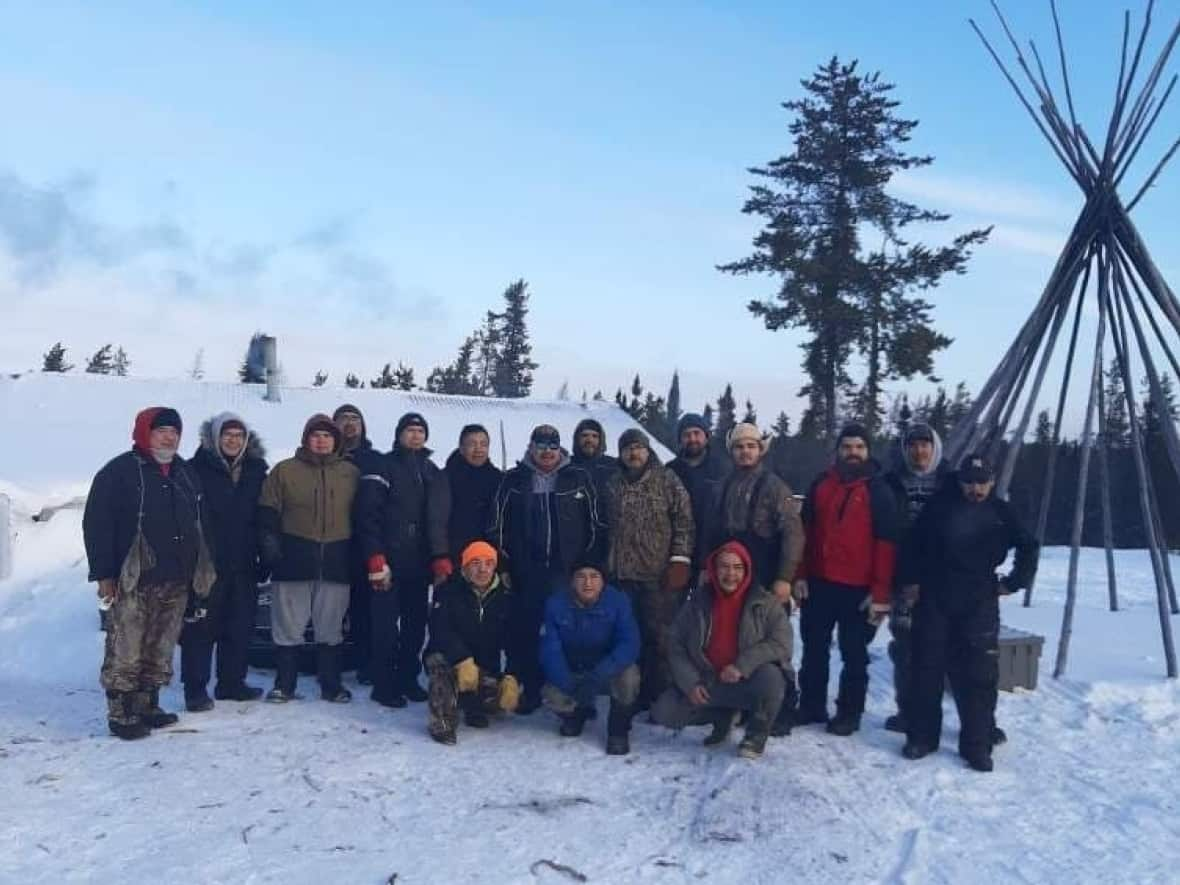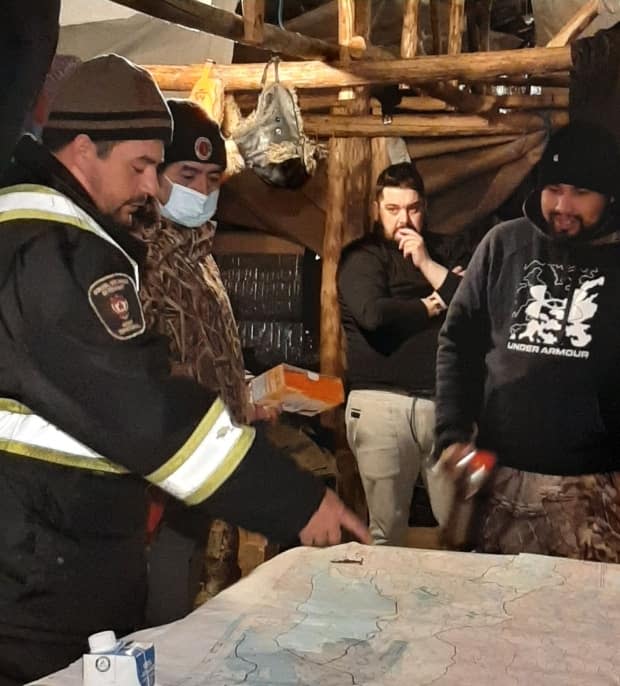Caribou harvest renews ancient ties between Innu and Cree

A traditional caribou hunt by Innu hunters on Cree traditional territory in northern Quebec was a success, according to all those involved.
The harvest of 300 caribou happened from Feb. 6 to March 4 on a trapline east of the Cree Nation of Chisasibi, which is located about 1400 kilometres north of Montreal.
It was the result of a 'mutual understanding' called Maamuu nisituhtimuwin/ Matinueu-mashinaikan atiku e uauinakanit, signed between the Cree and Innu nations in January.
For John Pachano, it was a modern renewal of an ancient tradition to help families from other Indigenous nations when they didn't have enough to eat.
A long time ago, people helped each other. - John Pachano, Cree tallyman
"A long time ago, people helped each other. I heard of this from my late father," said Pachano in Cree. Pachano is the tallyman, or Cree land steward, of trapline CH18, where the Innu caribou hunt took place.
Under the mutual understanding, the Cree Nation has "gifted" a harvest of 300 caribou from the Leaf River herd to the Innu Nation, out of its own guaranteed annual harvest of 850 caribou outlined in the James Bay and Northern Quebec Agreement.
The Innu for their part, agreed to respect certain protocols, such as notifying Chisasibi officials, taking a Cree guide and conducting the hunt according to "traditional customs and values."

Chisasibi Chief Daisy House said the hunt went very well and affirmed the Indigenous way of managing the herd.
"It's very important because we are practicing our way of life, our customs and our traditions. It came from our elders, the tallymen and our land users and from many years of discussions regarding the caribou hunt," said House.
The understanding came after tensions over unauthorized harvests by Innu hunting parties came to a head last winter, when a reported 280 caribou were harvested without Cree knowledge.
Caribou populations in severe decline
Caribou populations have been in severe decline for many years, in particular the George River herd, which was most present on the traditional territory of the Innu, Naskapi and Inuit in both Quebec and Labrador.
That herd is down to just over 8,000 animals, just 1 per cent of its 1990 population of more than 800,000 animals. There has been a complete ban on hunting the George River herd in both Labrador and Quebec for several years.
Population numbers for the Leaf River herd, which is the main herd present in Chisasibi traditional territory, are also down significantly from 2000, when the count was more than 600,000. Quebec closed the sport hunt of the Leaf River herd in 2018.
But the numbers have at least been stable at approximately 190,000 for the last few years.

"That's where I thought I could help them," said tallyman Pachano. "Especially the elders that haven't tasted caribou for a long time."
Pachano said he most appreciated the exchanges that happened in the evenings after a day of hunting.
"They told stories … they like to laugh, one finishes the story then another tells it. When we talked we talked slowly, that's how we understood each other," said Pachano, adding there were only a few Innu words that he wasn't able to catch.
Renewed ties will continue to grow
For Réal McKenzie, the Chief of the Innu community of Matimekush-Lac John, the hunt meant so much for his people.
"The caribou is not just a symbol. It's a traditional food we have always eaten," said McKenzie, adding it's part of Innu identity.
McKenzie says the growing connection between Innu and Cree nations brought about through this caribou hunt is only the beginning.
"This [mutual understanding] about the caribou gives us a great, great opening for discussions for our future," said McKenzie.
"It [allows us] to really again be close together and share our knowledge."



